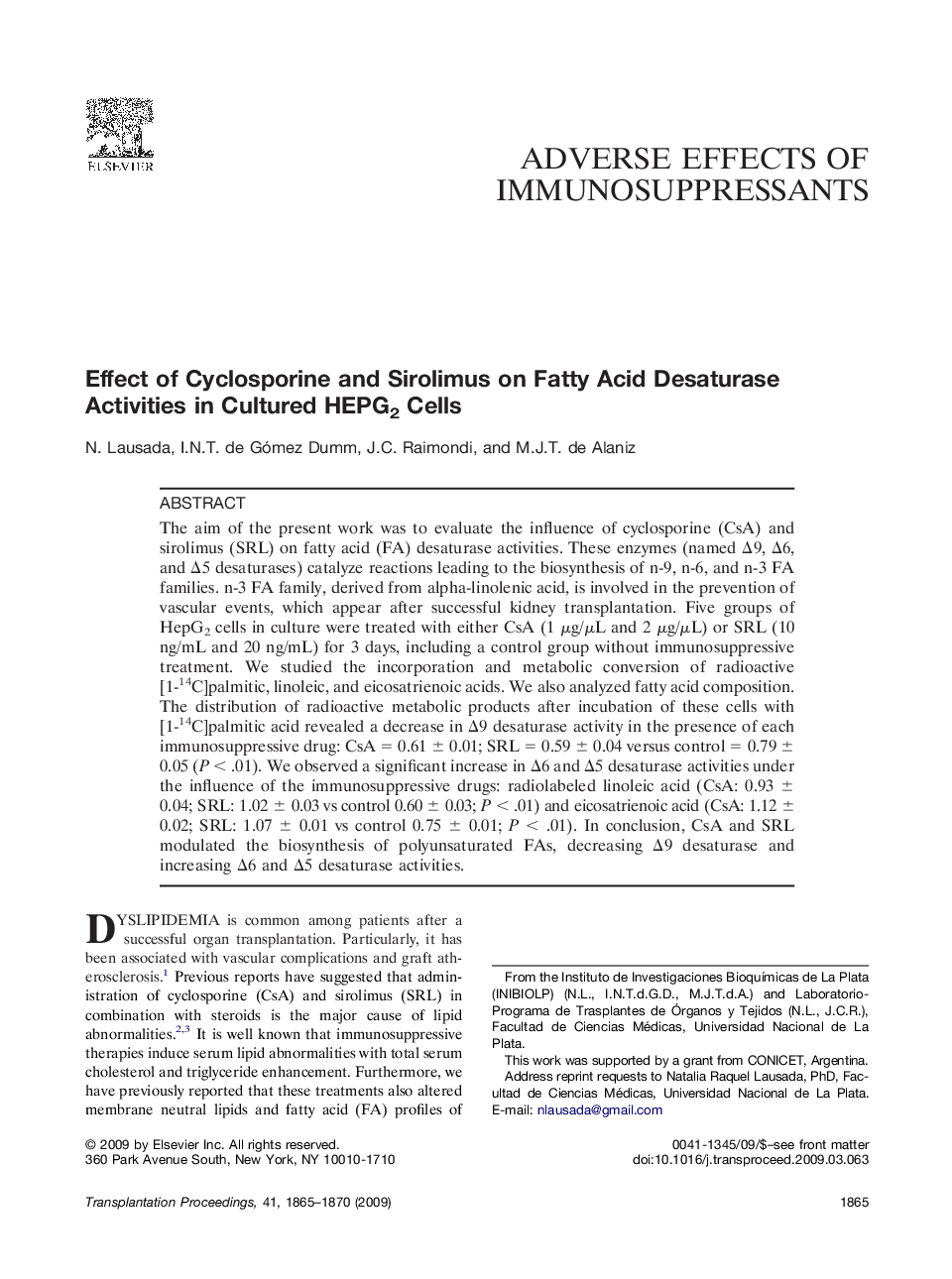| Article ID | Journal | Published Year | Pages | File Type |
|---|---|---|---|---|
| 4259304 | Transplantation Proceedings | 2009 | 6 Pages |
The aim of the present work was to evaluate the influence of cyclosporine (CsA) and sirolimus (SRL) on fatty acid (FA) desaturase activities. These enzymes (named Δ9, Δ6, and Δ5 desaturases) catalyze reactions leading to the biosynthesis of n-9, n-6, and n-3 FA families. n-3 FA family, derived from alpha-linolenic acid, is involved in the prevention of vascular events, which appear after successful kidney transplantation. Five groups of HepG2 cells in culture were treated with either CsA (1 μg/μL and 2 μg/μL) or SRL (10 ng/mL and 20 ng/mL) for 3 days, including a control group without immunosuppressive treatment. We studied the incorporation and metabolic conversion of radioactive [1-14C]palmitic, linoleic, and eicosatrienoic acids. We also analyzed fatty acid composition. The distribution of radioactive metabolic products after incubation of these cells with [1-14C]palmitic acid revealed a decrease in Δ9 desaturase activity in the presence of each immunosuppressive drug: CsA = 0.61 ± 0.01; SRL = 0.59 ± 0.04 versus control = 0.79 ± 0.05 (P < .01). We observed a significant increase in Δ6 and Δ5 desaturase activities under the influence of the immunosuppressive drugs: radiolabeled linoleic acid (CsA: 0.93 ± 0.04; SRL: 1.02 ± 0.03 vs control 0.60 ± 0.03; P < .01) and eicosatrienoic acid (CsA: 1.12 ± 0.02; SRL: 1.07 ± 0.01 vs control 0.75 ± 0.01; P < .01). In conclusion, CsA and SRL modulated the biosynthesis of polyunsaturated FAs, decreasing Δ9 desaturase and increasing Δ6 and Δ5 desaturase activities.
